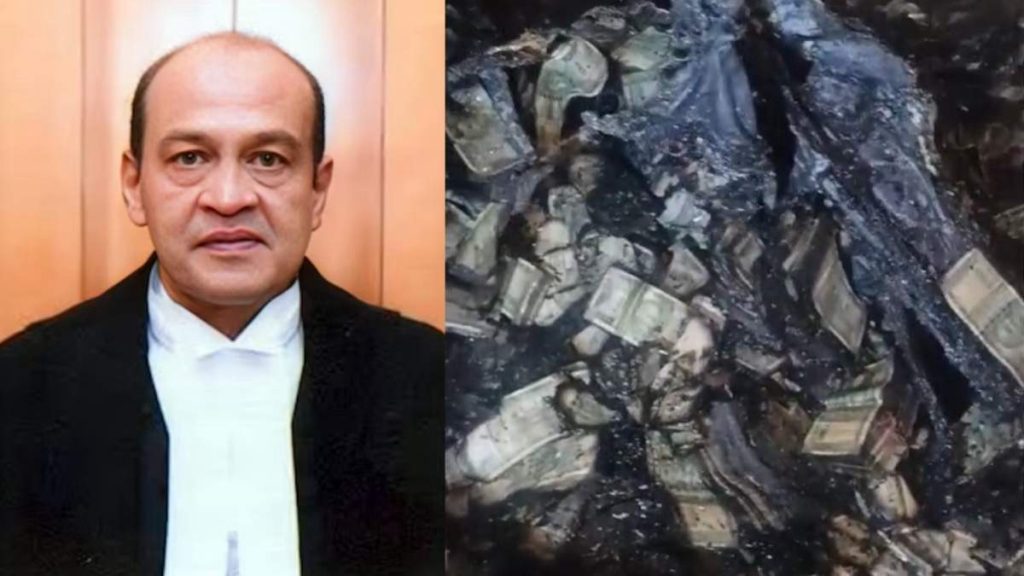
William Shakespeare famously wrote in Julius Caesar that “Caesar’s wife must be above suspicion,” underscoring the expectation that those in positions of authority must remain beyond even the slightest appearance of impropriety. This principle is particularly crucial in the judiciary, where trust and integrity form the foundation of justice. However, the recent alleged discovery of unaccounted cash in a storeroom at the official residence of Justice Yashwant Varma, a judge of the Delhi High Court, has sparked serious concerns. The Supreme Court has appointed a probe committee consisting of the Chief Justice of the Punjab & Haryana High Court Justice Sheel Nagu, Chief Justice of the Himachal Pradesh High Court Justice G.S. Sandhawalia, and Karnataka High Court Judge Justice Anu Sivaraman, to conduct a transparent and expeditious probe.
Justice Varma, who was appointed to the Allahabad High Court in October 2014 and transferred to the Delhi High Court in October 2021, is set to retire in 2031 unless elevated to the Supreme Court, in which case his tenure would extend until 2034. Given the gravity of the situation, the Supreme Court has taken an unprecedented step by making the inquiry report, submitted by the Chief Justice of the Delhi High Court, publicly available. The report’s conclusion that the “entire matter warrants a deeper probe” has only intensified scrutiny. Further, a short video recording of a firefighter gathering together a mound of charred currency notes in the still smouldering store room, adds an element of mystery to the unfolding case.
At the core of this controversy lies the credibility and integrity of the judiciary. Justice Varma has maintained that neither he nor his family members were responsible for storing the cash, raising critical questions: Was the money placed there without his knowledge? If so, was it part of a larger conspiracy to frame and tarnish the judge’s reputation? If foul play is involved, who orchestrated it?
The judiciary, being the guardian of justice, must not allow any ambiguity to persist. This is not the first instance of financial irregularities linked to the judiciary. In March 2025, former Punjab and Haryana High Court judge Justice Nirmal Yadav was acquitted after a 17-year-long corruption case involving Rs 15 lakh found at another judge’s residence. Likewise, allegations of sexual harassment against former Chief Justice of India Ranjan Gogoi in 2019 raised serious concerns when he participated in his own case proceedings, leading to the internal committee’s dismissal of the allegations. Similarly, accusations against Justice N.V. Ramana by former Andhra Pradesh Chief Minister Jagan Mohan Reddy in 2020 were handled through an internal inquiry whose findings were never disclosed.
The importance of openness in this matter cannot be overstated. Ultimately, the judiciary must uphold the highest ethical standards, ensuring that justice is not only done but seen to be done. The outcome of this case will serve as a crucial litmus test for the Indian judicial system’s commitment to integrity, impartiality, and transparency.













